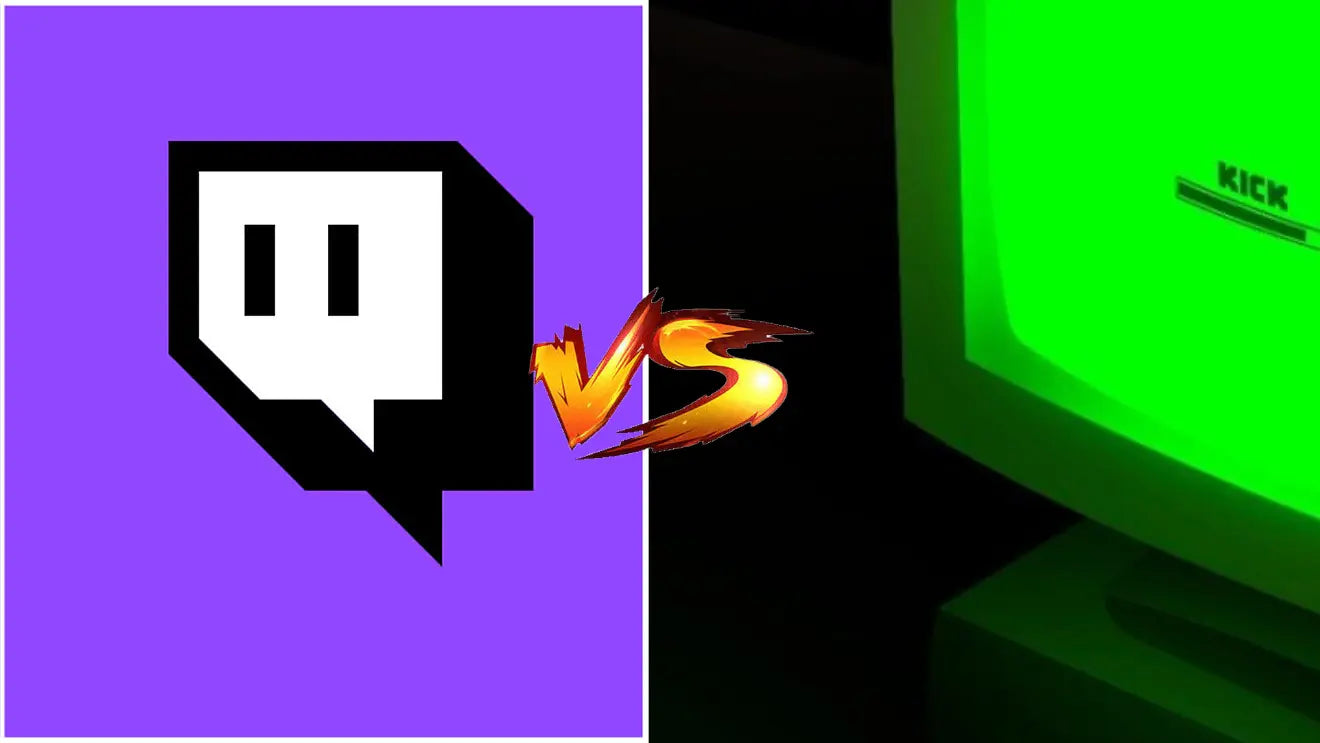Twitch vs Kick: The Streaming Platform Drama of the Month
| Johnathon Reyes
Twitch vs Kick: The Streaming Platform Drama of the Month
If you are a fan of live streaming, you might have noticed a new player in the game: Kick. This platform, launched in March 2023, claims to be the most creator-friendly streaming service, offering a 95/5 revenue split for subscriptions and 100% of tips. Kick is backed by online gaming and gambling sites in Australia, such as Easygo Gaming and Stake.com, which gives it a lot of financial power to attract streamers.
But how does Kick compare to Twitch, the dominant platform in the streaming industry? And why are some of the biggest names in streaming leaving Twitch for Kick? Here’s a rundown of the main differences and controversies between the two platforms.

Revenue Split
One of the main reasons why streamers are switching to Kick is the revenue split. Twitch has a 50/50 subscription revenue share for most content creators, which means that half of the money that viewers pay to subscribe to a channel goes to Twitch. Only a small portion of streamers retain 70% of the subscription revenue, but Twitch has said it couldn’t offer this deal to everyone on the platform.
Kick, on the other hand, gives a 95% split of all subscription income to creators, on top of 100% of the tips. This means that streamers can earn much more money on Kick than on Twitch, especially if they have a loyal fan base. For example, popular streamer Trainwreck announced that he made over $1 million in his first month on Kick, compared to $300,000 on Twitch.
However, some critics have questioned the sustainability and legitimacy of Kick’s business model. A former Amazon engineer argued that Kick is in fact “subsidizing” Twitch by paying Amazon for their streaming service1. Others have suggested that Kick’s generous revenue split is a way to lure streamers into promoting its gambling affiliates2.

Gambling
Another major difference between Twitch and Kick is their stance on gambling. Twitch doesn’t allow users to share links or affiliate codes to sites where you can play slots, roulette, or dice games and has prohibited anyone from streaming these gambling sites that aren’t licensed either in the U.S. or other jurisdictions that can provide enough consumer protection. There are four famous gambling sites currently banned on Twitch: stake.com, rollbit.com, duelbits.com, and roobet.com. Twitch streamers can still broadcast online poker, sports betting, and fantasy sports.
Kick has a similar policy. “Gambling on Kick with other users is strictly prohibited,” Kick’s community guidelines read. “This includes any form of ‘buy in’ from users using Kicks as well as sweepstakes and lotteries.” The streamers on Kick may stream games like online poker and online blackjack, depending on the laws and regulations of their country3.
However, some streamers have accused Twitch of being hypocritical and inconsistent with its gambling rules. For instance, xQc, one of the most popular streamers on Twitch, was banned for seven days for streaming slots on stake.com, while other streamers who did the same thing were not punished. xQc also claimed that Twitch was trying to pressure him into signing an exclusive contract with them by threatening to ban him permanently if he continued to gamble on stream4. xQc later announced that he has signed a two-year contract worth up to $100 million to move to Kick2.
Content Moderation
A third aspect that differentiates Twitch and Kick is their approach to content moderation. Twitch has a set of community guidelines that cover topics such as hateful conduct, harassment, nudity, sexual content, violence, gore, illegal activities, and more. Twitch also has a system of warnings, suspensions, and bans for users who violate these guidelines.
Kick’s community guidelines are much more vague and lenient. They state that “Kick is an open platform where anyone can express themselves freely” and that “we do not censor or judge what you choose to broadcast.” They only prohibit content that is illegal, harmful to minors, infringes on intellectual property rights, or promotes terrorism or self-harm3.
This means that streamers on Kick have more freedom and flexibility to create content that they want without worrying about getting banned or demonetized by Twitch. However, this also means that Kick has less control and oversight over what happens on its platform. Some critics have warned that Kick’s lax moderation could lead to problems such as hate speech, harassment, scams, piracy, or even illegal activities2.
Conclusion
Twitch and Kick are two very different streaming platforms with different advantages and disadvantages for both streamers and viewers. While Twitch offers more stability, security, and exposure for its creators, it also imposes more restrictions and limitations on their content and revenue. Kick, on the other hand, offers more freedom, flexibility, and income for its creators, but it also comes with more risks and uncertainties for its platform and community.
The streaming platform drama of the month is not over yet. More streamers are likely to join or leave either platform in the future, depending on their preferences and goals. As a viewer, you have the choice to follow your favorite streamers wherever they go, or to explore new ones on different platforms. Either way, you can enjoy a variety of live content from talented and entertaining creators.



Translation missing: zh-CN.blogs.comments.title
Your email address will not be published.